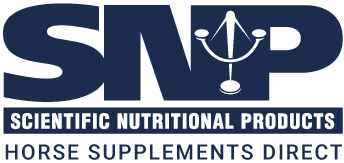At this time of year, when the grazing is sparse and your equine is spending the majority of his time stabled the bulk of their feed is usually dry fodder including things like hay and concentrate feed. Large pieces of poorly chewed feed, in combination with in some cases inadequate water supply, can cause equine choke; a potentially dangerous condition. Prevention is always better than cure, so equine choke should be fully understood before it happens so that you can recognise the issue and call your vet immediately. What is Choke? Choke is when something, such as a piece of food, becomes lodged in the horse’s Oesophagus. The tube between the horse's mouth and stomach becomes blocked leading the horse to be unable to swallow. Though the horse is still able to breathe when suffering choke the impaired equine cannot swallow, leading them to become extremely distressed and often resulting in dehydration. In severe cases a secondary condition can be developed by the choking horse known as Aspiration Pneumonia, which is where the food material and the salvia accumulates in the pharynx and “spills” over and into the trachea and the lungs. Equine choke is considered one of the top 10 veterinary emergencies. Why do horses choke? Some horses may suffer choke as a result of a dental problem causing them not to chew and grind their food properly. In addition, those horses that bolt their food and do not sufficiently chew the food material are at a much higher risk of choke. Dry food is the biggest causes of choke in equines, particularly if the horse does not have adequate access to water. Top Tips for Spotting Choke in your Equine 1.) Difficulty in swallowing 2.) Disinterest in ingesting food 3.) Coughing 4.) Extending the neck and head; usually in a downward direction 5.) Discharge from the nostrils. This can be green, yellow or clear in colour. 6.) Increased salivation, potentially causing the horse to drool. 7.) Heart rate may increase slightly as a result of the distress of the equine. 8.) Occasionally, a lump on the side of the neck is visible. This is where the oesophagus is blocked! Typically the lump is normally the most obvious on the left side of the neck. How Can You Prevent Choke? The key to preventing choke is to always provide your horse with an ample water source, withhold feed temporarily after sedation, maintain regular trips from the equine dentist. You should also always change feeds gradually and discourage bolting by utilising techniques such as adding sliced carrot or apple to the feed- just ensure you slice the succulents length ways so your horse is able to bite and chew the fruit and vegetables, as discs sometimes can become lodged in the throat. In addition where suitable, it may be beneficial to soak the hay that you provide to your equine! In order to maintain additional optimum health including a vitamin and mineral supplement in the diet such as Horse & Pony Multivitamin Supplement or Competition Horse Supplement offered by Scientific Nutritional Products can be beneficial to supply the vital nutrients in the diet. For more information about the range of supplements available or to keep up-to-date with our educational blog, visit the website www.horsesupplementsdirect.co.uk


